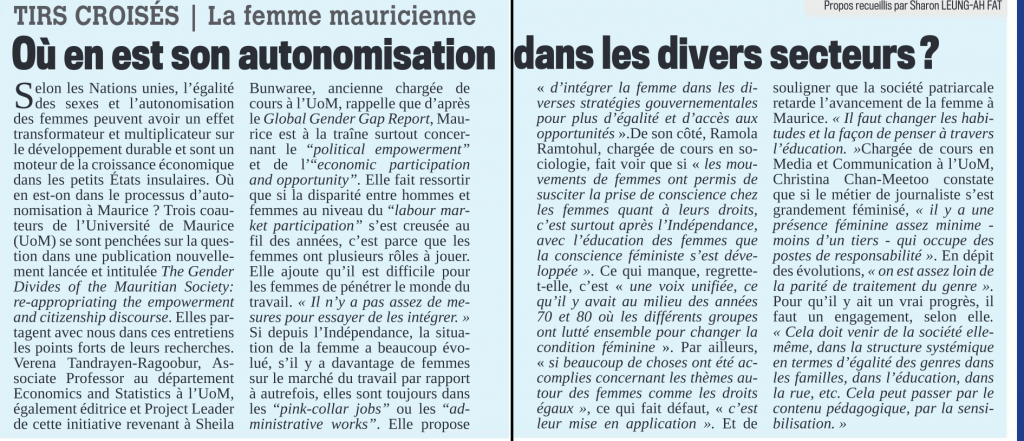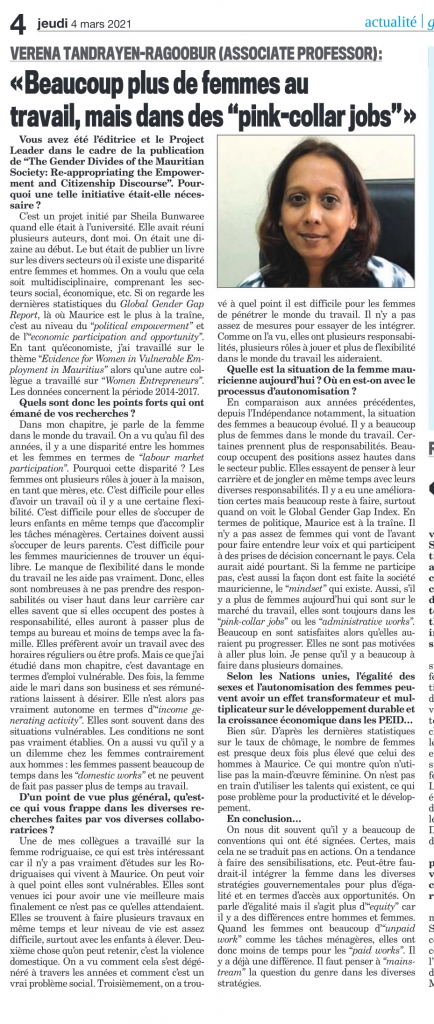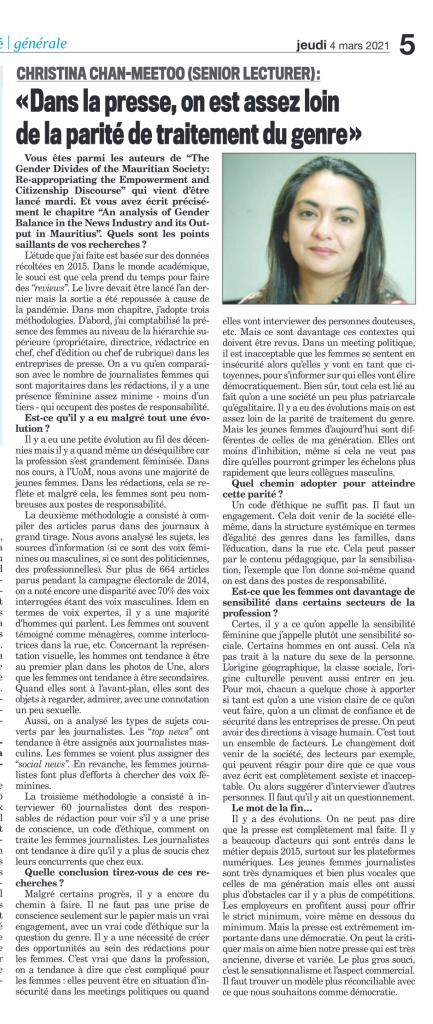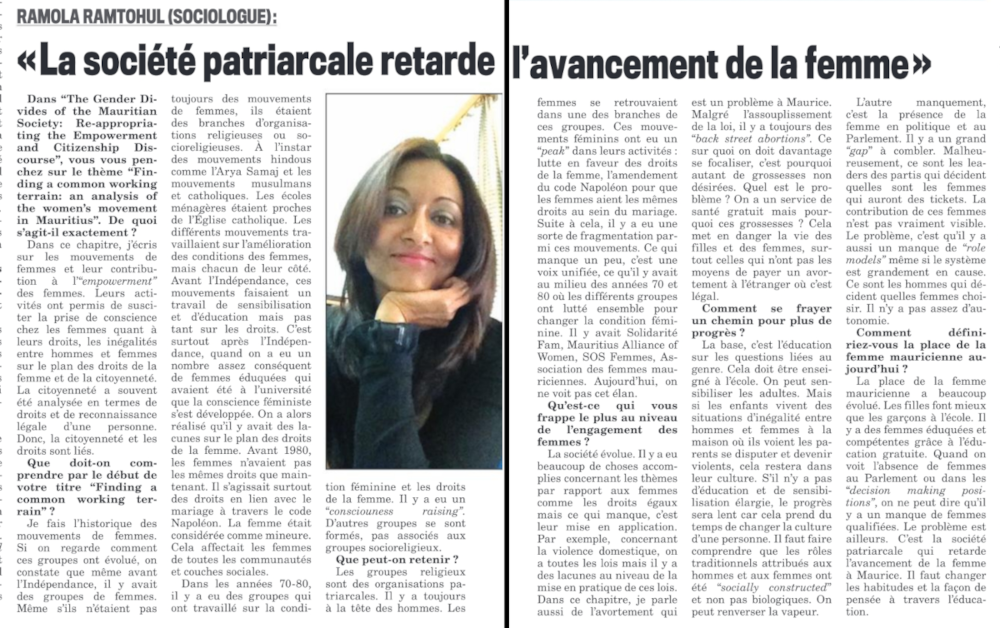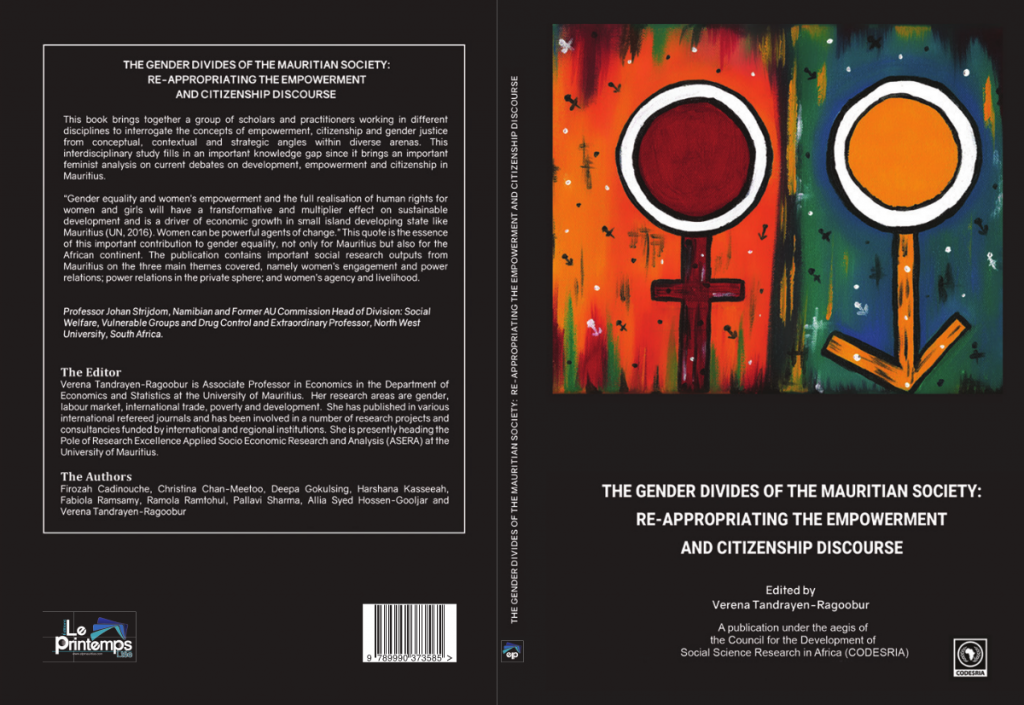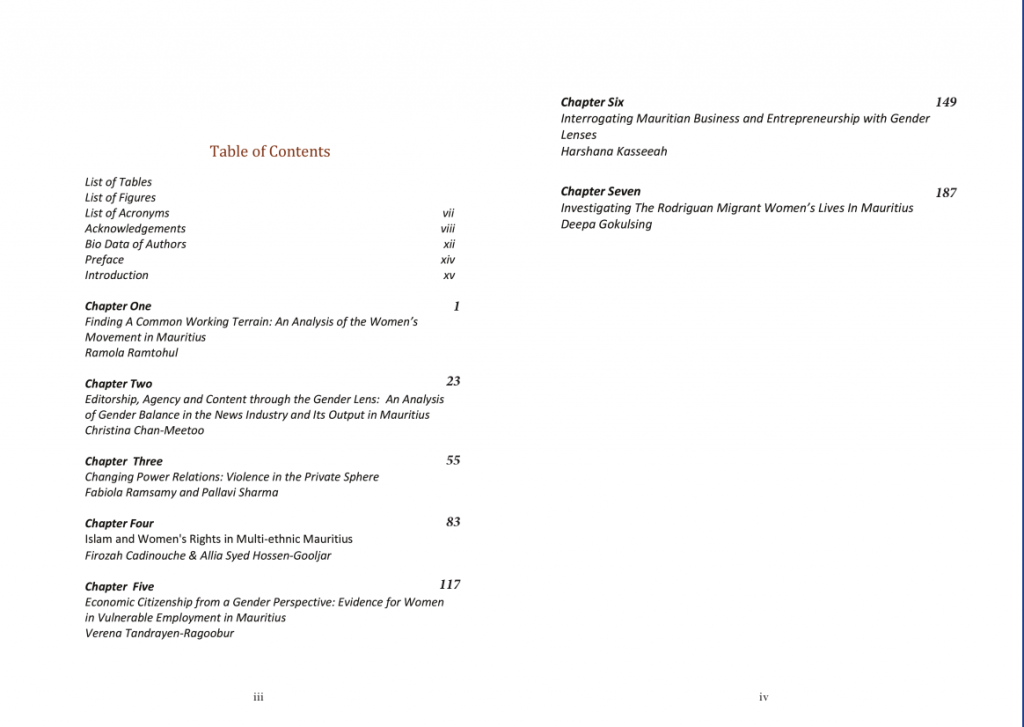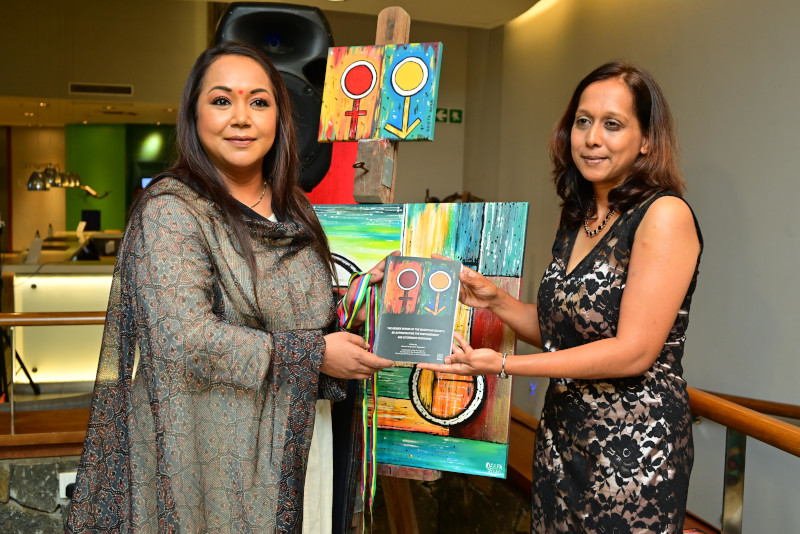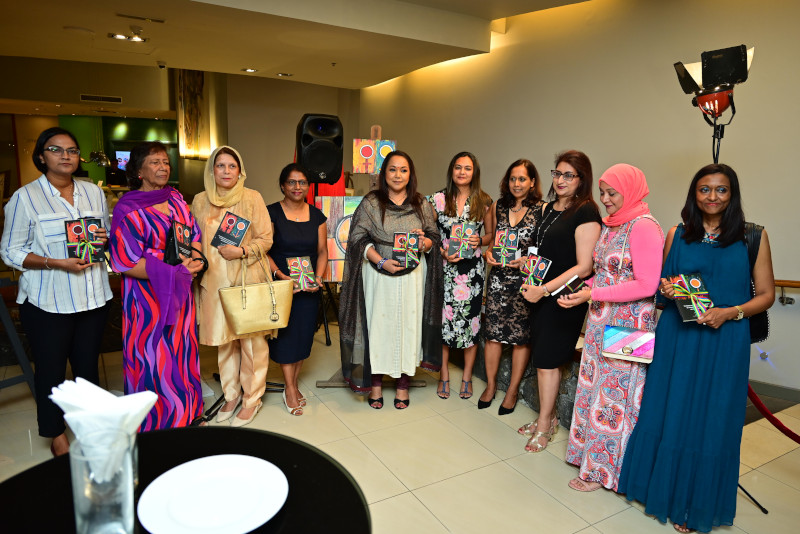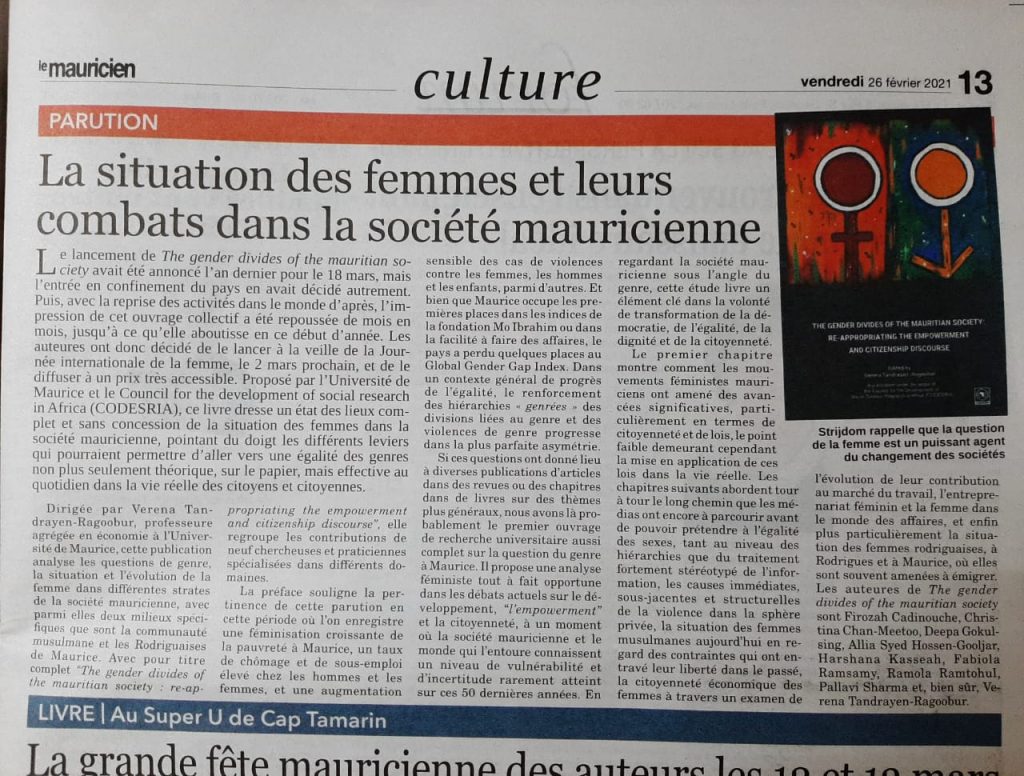Mauritius
Telegram nudes scandal in Mauritius: Media people beware!
- True, it’s best for anyone not to have shared with anyone else or to have posted any of their intimate pics as it makes them easy to share widely and quickly.
- But, even if someone did the above willingly, shifting the blame to the victim only serves to exonerate the people who maliciously shared the pics with random dudes.
- Even if a woman did engage in an illicit transaction (whereby both sender and receiver are guilty according to law BTW), that transaction was one-to-one. So, while she may be guilty of trespassing against Mauritian law by selling porn content, the man who illegally buys it and then reshares is distributing porn on a bigger scale.
- Those whose pics were sent by mutual consent to a lover or partner, whether in a short-term or a long-term relationship, never intended those to be made available to other random dudes. So, this a breach of trust in a relationship, however short-lived the relationship might have been, and it is a sign of a deranged mind that indulges in the gratuitous exploitation of the image of a partner’s body for vile reasons, possibly for revenge porn.
Clearly, the intention is vile and abject. And we should start flipping the narrative against the perpetrators.
[Read more…] about Telegram nudes scandal in Mauritius: Media people beware!
(Tirs croisés) La femme mauricienne : Où en est son autonomisation dans les divers secteurs ? (Journal Le Mauricien)
Article de Sharon Leung-Ah Fat publié dans le journal Le Mauricien du 4 mars 2021
Selon les Nations unies, l’égalité des sexes et l’autonomisation des femmes peuvent avoir un effet transformateur et multiplicateur sur le développement durable et sont un moteur de la croissance économique dans les petits États insulaires. Où en est-on dans le processus d’autonomisation à Maurice ?
Trois coauteurs de l’Université de Maurice (UoM) se sont penchées sur la question dans une publication nouvellement lancée et intitulée The Gender Divides of the Mauritian Society: re-appropriating the empowerment and citizenship discourse. Elles partagent avec nous dans ces entretiens les points forts de leurs recherches. Verena Tandrayen-Ragoobur, Associate Professor au département Economics and Statistics à l’UoM, également éditrice et Project Leader de cette initiative revenant à Sheila Bunwaree, ancienne chargée de cours à l’UoM, rappelle que d’après le Global Gender Gap Report, Maurice est à la traîne surtout concernant le “political empowerment” et de l’“economic participation and opportunity”.
Elle fait ressortir que si la disparité entre hommes et femmes au niveau du “labour market participation” s’est creusée au fil des années, c’est parce que les femmes ont plusieurs rôles à jouer. Elle ajoute qu’il est difficile pour les femmes de pénétrer le monde du travail. « Il n’y a pas assez de mesures pour essayer de les intégrer. » Si depuis l’Indépendance, la situation de la femme a beaucoup évolué, s’il y a davantage de femmes sur le marché du travail par rapport à autrefois, elles sont toujours dans les “pink-collar jobs” ou les “administrative works”. Elle propose « d’intégrer la femme dans les diverses stratégies gouvernementales pour plus d’égalité et d’accès aux opportunités ».
Lancement d’un livre autour de l’inégalité des genres (Channel News)
The Gender Divides of the Mauritian Society: Re-appropriating the Empowerment and Citizenship Discourse (Publication)
This book by 9 Mauritian women scholars is published under the aegis of CODESRIA (Council for the Development of Social Science Research in Africa) and was launched on Tuesday 2 March 2021 in the context of the International Women’s Day. The editor is Associate Professor Verena Tandrayen Ragoobur.
About the book:
This book brings together a group of scholars and practitioners working in different disciplines to interrogate the concepts of empowerment, citizenship and gender justice from conceptual, contextual and strategic angles within diverse arenas. This interdisciplinary study fills in an important knowledge gap since it brings an important feminist analysis on current debates on development, empowerment and citizenship in Mauritius.
“Gender equality and women’s empowerment and the full realisation of human rights for women and girls will have a transformative and multiplier effect on sustainable development and is a driver of economic growth in small island developing states like Mauritius (UN, 2016). Women can be powerful agents of change.” This quote is the essence of this important contribution to gender equality, not only for Mauritius but also for the African continent. The publication contains important social research outputs from Mauritius on the three main themes covered, namely women’s engagement and power relations; power relations in the private sphere; and women’s agency and livelihood.
Professor Johan Strijdom, Namibian and Former AU Commission Head of Division: Social Welfare, Vulnerable Groups and Drug Control and Extraordinary Professor, North West University, South Africa.
∼ ∼ ∼ ∼ ∼ ∼ ∼ ∼ ∼ ∼ ∼
Structure of the book:
Part 1: Women’s Engagement and Power Relations
- Finding A Common Working Terrain: An Analysis of the Women’s Movement in Mauritius by Ramola Ramtohul
- Editorship, Agency and Content through the Gender Lens: An Analysis of Gender Balance in the News Industry and Its Output in Mauritius by Christina Chan-Meetoo
Part 2: Power Relations in the Private Sphere
- Changing Power Relations: Violence in the Private Sphere by Fabiola Ramsamy and Pallavi Sharma
- Islam and Women’s Rights in Multi-ethnic Mauritius by Firozah Cadinouche & Allia Syed Hossen-Gooljar
Part 3: Women’s Agency and livelihoods
- Economic Citizenship from a Gender Perspective: Evidence for Women in Vulnerable Employment in Mauritius by Verena Tandrayen-Ragoobur
- Interrogating Mauritian Business and Entrepreneurship with Gender Lenses by Harshana Kasseeah
- Investigating The Rodriguan Migrant Women’s Lives In Mauritius by Deepa Gokulsing
∼ ∼ ∼ ∼ ∼ ∼ ∼ ∼
About CODESRIA
The Council for the Development of Social Science Research in Africa (CODESRIA) is headquartered in Dakar, Senegal. It was established in 1973 as an independent pan-African research organisation primarily focusing on social sciences research in Africa. It is recognised not only as the pioneer African social research organisation but also as the apex non-governmental centre of social knowledge production on the continent
∼ ∼ ∼ ∼ ∼ ∼ ∼∼ ∼ ∼ ∼ ∼ ∼ ∼∼
Giving back to the community
Proceeds of book sales are donated to the NGO SOS Femmes in honour of its founder late Mrs Rada Gungaloo.
The book is on sale at Petrusmok library in Hennessy Hotel and at Bookcourt at the cost price of RS 250. It will be available in other bookshops later.
Media coverage:
- (Tirs croisés) La femme mauricienne : Où en est son autonomisation dans les divers secteurs ? (Journal Le Mauricien)
- La situation des femmes et leurs combats dans la société mauricienne (Journal Le Mauricien)
- Lancement d’un livre autour de l’inégalité des genres (Channel News)
- Liv “Gender Divides” lor Senn Kreol MBC TV
- Les Grandes Lignes – Gender Divides (MBC TV)
- Droits et libertés de la femme à Maurice : trop de discours, peu d’actions (DefiMedia)
- Nine women scholars analyse the place of women in the Mauritian society (News on Sunday)
- Sexism adds to mounting pressure women journalists are facing in Africa
